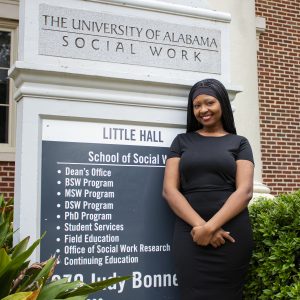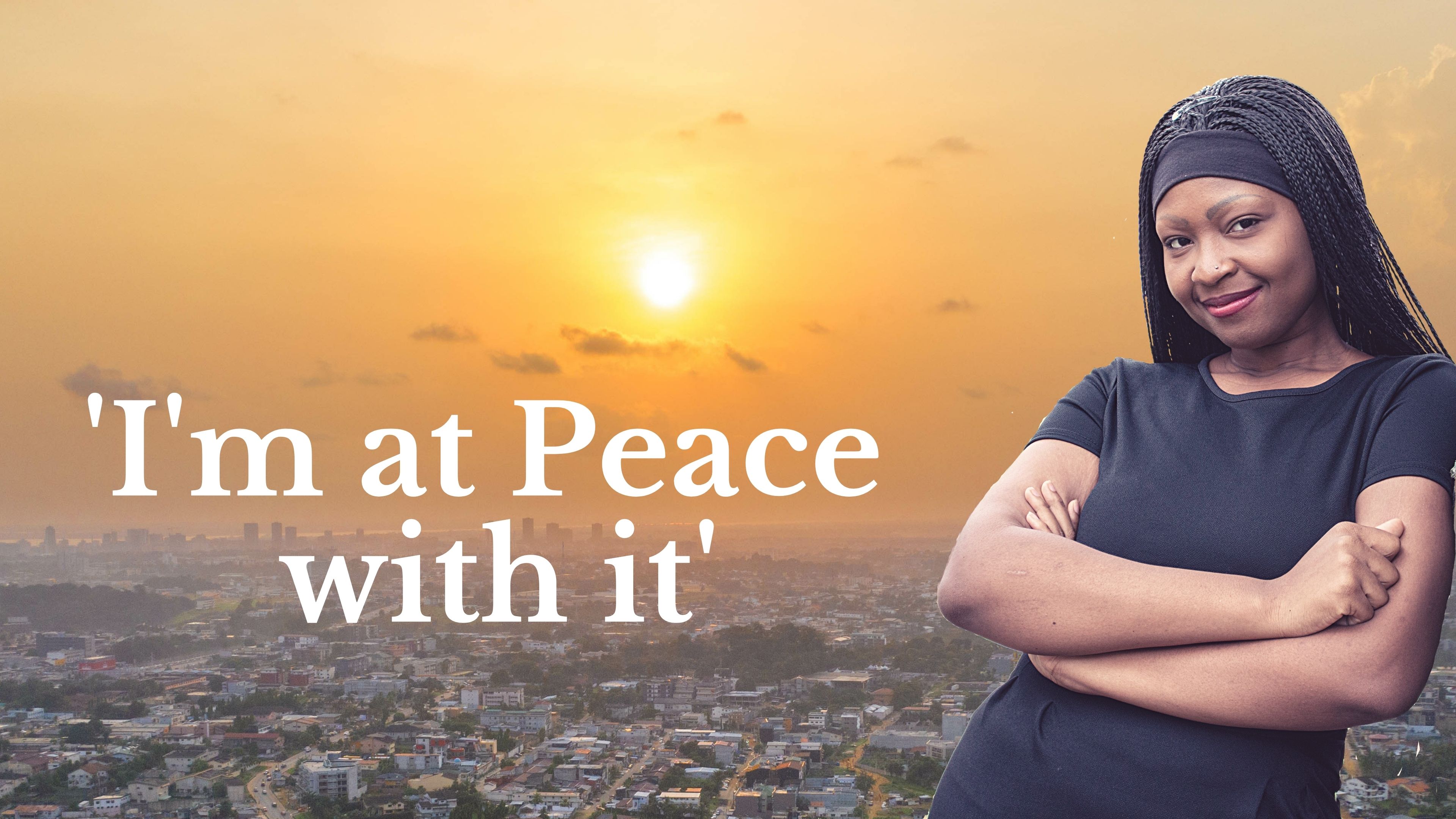By David Miller
June 17, 2021
Families process tragedy and grief differently, but when it plays out in news media, families are forced to dispel rumors and combat misinformation, not just for the public, but for their own children.
Zainab (Zee) Suntai was a child when her father, Danbaba, a pharmacist and Bali-born politician, became governor of the Taraba State of Nigeria in 2007. In 2012, just a year after Danbaba was re-elected, he suffered a traumatic brain injury after a plane he was piloting crashed.
Danbaba’s cognitive impairment affected his mobility, activities of daily living, and memory, Zee said.
“He didn’t remember the accident … didn’t remember who [his family] were,” Zee said. “He was in an out of a lot of treatments and rehabilitation.”
Danbaba would pass away on June 28, 2017.
News of Danbaba’s injury and passing were covered extensively in Nigerian and African news media, but for Zee and her siblings, including three younger than her, it was difficult to separate truth from fiction, both in the “very political” news coverage, but also in how family elders shielded the children from the reality of Danbaba’s condition – typical in Nigerian culture – she said.

Suntai: “Having a personal connection really drives the work we do.”
“The last few years I had with him might have been much better if I’d had full knowledge of what’s going on, instead of wondering and questioning,” Zee said. “There was uncertainty and self-doubt – I was observing things that weren’t true. Then I was reading things being said about my dad – a different story from what I was hearing from my family.
“It’s hard to have a total reconciliation because I don’t get to re-do the experience, but I think I’m at peace with it.”
Zee’s experiences in processing and grieving her father’s injuries and death shifted her focus from business to social work. Currently pursuing a PhD at the University of Alabama School of Social Work, Zee aspires to help traumatic brain injury survivors, their family members, and their caregivers.
Zee and PhD classmate Kirsten Laha-Walsh are working with the Alabama Head Injury Foundation and Alabama Department of Rehabilitation Services to provide caregiver advocacy training throughout the state of Alabama. Zee is also helping in facilitating AHIF’s “Bright Ideas Camp,” a three-day, UA-hosted camp that engages campus experts from music, nursing, nutrition and social work.
Zee says engaging TBI survivors and their families allows her to help them cope and navigate their situations better, but to also help her process grief that “never goes away.”
“After I got to the acceptance stage of grieving, I developed this passion to help others who are grieving or going through this,” she said. “I turned my research attention to grief, loss, caregiving and traumatic brain injury. At that point, I felt I had first-hand knowledge, and while this is an academic field, having a personal connection really drives the work we do.”
A friend, a passion project
Laha-Walsh, a former hospital corpsman in the Navy, says both she and Zee have “personal connections” that power their service work with AHIF.
Balancing service with course work, research and apprenticeships can be difficult, Laha-Walsh says, but her and Zee’s shared motivations are buoyed by their friendship, which began nearly two years ago when they first met at a luncheon organized by others in the PhD program. They’ve since collaborated on research that explores the experiences of caregivers of military veterans in the state.
“We engaged as classmates, but as you go through the program, it gets difficult and you start to rely on each other,” Zee said. “Kirsten has been like a mentor to me, giving me advice and passing along opportunities like AHIF – she invited me.”
In their project with AHIF, Zee and Laha-Walsh meet with 10 caregivers over a 15-week span and cover pain and medication management, grief and loss, and caregiver burden and stress. This pilot project also incorporates feedback from the caregivers themselves, which helps shape each class. Zee says that she and Laha-Walsh will sometimes pivot from their planned topic in the middle of a session if the engagement or demand warrants it.
“We gave the participants a survey, and they identified key areas like how to apply for a power of attorney, Medicaid, medical resources, funding and stipends,” Laha-Walsh said. “So we found a couple of lawyers who share this passion to help them draft a will and speak to them directly to meet these needs.”
Laha-Walsh says their work with AHIF has been a joint effort, as organizing curriculum and presentations and executing the 15-week training calendar would be “too much for one person.”
“Zee designed the entire schedule,” Laha-Walsh said. “I threw topics and ideas out there, but she designed it by week to get a firm outlook.
“Zee also catches my mistakes and will say, ‘it’s OK, I told the caregivers to expect this …” It’s those tiny things sometimes … but when blended into the entire project, it adds the color and life to it. I’m a very dry person, and Zee adds that life to it and helps me translate my dry, monotone stuff into something exciting.”
Zee says that their work with AHIF has been incredibly enriching and rewarding, “even if it’s just one resource we’ve made someone aware of.”
“Research can sometimes be very detached,” Zee said, “but when you’re working with these people, it reminds you why you’re here and getting a PhD – to serve these people. We know the work we’re doing is worth it. It humanizes us.”
Editor’s note: this story first appeared in the 2020-21 edition of Outreach
